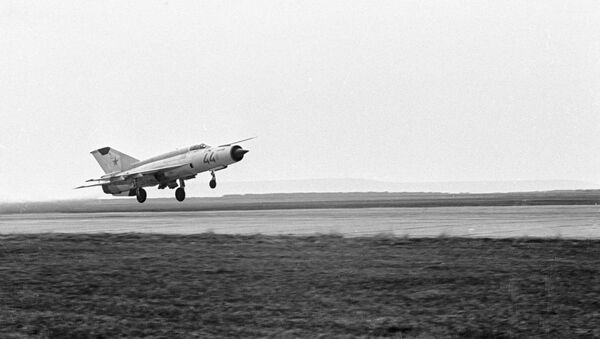Only very few aircraft are able to withstand the test of time. One such aircraft is the Soviet MiG-21, Farley wrote for the online magazine National Interest.
The MiG-21 was created in the mid-1950s and could reach a supersonic speed of Mach 2. It was also equipped with two aeroguns, could carry up to six missiles and was code named the ‘Fishbed’ by NATO.
The aircraft was typically used for assault operations. A total of 10,645 MiG-21 aircraft were produced in the USSR in the period from 1959 to 1985.
Under the agreement with Russia, India built 657 of these fighters, and Czechoslovakia 194. The license for production of the MiG-21 was acquired by the Chinese government as well. From 1966 to 2013 about 2,400 fighters were released in China.
“Modern fighters don’t fly much faster than the MiG-21, or maneuver much more capably. While they do carry more ordnance and have more sophisticated electronic equipment, many air forces can treat these as luxuries; they simply want a cheap, fast, easy-to-maintain aircraft that can patrol airspace and occasionally drop a few bombs. The Fishbed fits the bill,” Farley wrote for National Interest.
If the total number of these aircraft is added up, the MiG-21 is “the most produced supersonic fighter in history,” the author further noted.
MiGs were involved in combat operations in Vietnam, in the Middle East during the Arab-Israeli conflict and in the Indo-Pakistani conflict. In all these operations the fighters proved more than worthy, Robert Farley wrote.
The number of MiG-21s began to decline in the late 1980s and early 1990s, when they began to be replaced by more modern models. However, even now the Soviet fighter is in service with the air forces of 18 countries, including two NATO member states — Romania and Croatia, the columnist added.
According to Farley, the MiG-21 will easily welcome its sixtieth and seventieth anniversary since its inception, because the fighter jet remains “one of the most legendary fighters” of the supersonic era.



